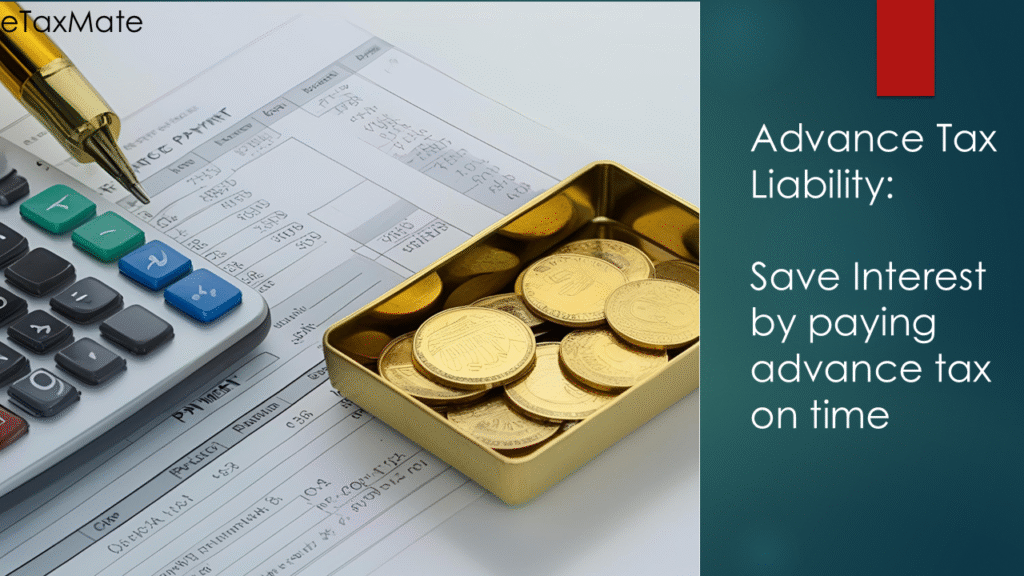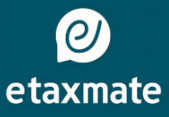
🧾 Introduction: The Hidden Trap of Interest on Advance Tax
As the financial year progresses, most taxpayers remain focused on their regular income and TDS deductions — unintentionally overlooking one crucial aspect: advance tax liability. Many individuals, especially professionals, freelancers, and even salaried employees with additional income, either forget or are unaware that they fall under the ambit of advance tax provisions.
The result? When they finally sit down to file their returns, they’re shocked to find a hefty interest burden under Sections 234B and 234C. These interest charges are not just penalties — they can eat into your hard-earned savings, all because the advance tax wasn’t paid at the right time.
Before you end up paying more than you should, let’s break down what advance tax liability really is, who needs to pay, how to calculate it, and most importantly, how to avoid unnecessary interest liability.
❌ Who Does Not Need to Pay Advance Tax?
While advance tax applies to a large number of taxpayers, there are specific categories of individuals who are exempt from this obligation. Understanding whether you fall into these exceptions can help you avoid unnecessary stress and confusion.
1. 💸 Tax Liability Less Than ₹10,000 (for the Entire Financial Year)
If your total estimated tax liability for a financial year is less than ₹10,000, advance tax is not applicable.
✅ Example:
Let’s say you’re a freelancer and estimate your income for FY 2024–25 to be ₹3,50,000. After claiming deductions (say, ₹1,50,000 under 80C), your taxable income is ₹2,00,000. This falls below the basic exemption limit, so your total tax payable = ₹0 — meaning no advance tax is required.
Even if your income attracts some tax, as long as the final tax liability after TDS or deductions is below ₹10,000, you are safe.
2. 👨💼 Salaried Individuals With Proper TDS Deduction
If you’re a salaried employee and your employer is deducting TDS accurately every month on your entire taxable income, then you’re not required to pay advance tax separately.
However, the moment you have additional income — like interest from FDs, rental income, or capital gains — and no TDS is deducted on that, advance tax may kick in.
✅ Tip: Check your Form 26AS or AIS to ensure no gaps in tax deduction on all income sources.
3. 👴 Senior Citizens Without Business Income
If you’re a resident individual aged 60 or above and do not have income from business or profession, then you’re exempt from paying advance tax, regardless of your total tax liability.
✅ Example:
A 68-year-old retiree earning ₹9,00,000 annually from pension and interest income will not be required to pay advance tax — even if their total tax liability exceeds ₹10,000 — because there’s no business income.
However, if that senior citizen starts freelancing or running a side business, then advance tax will apply if tax payable exceeds ₹10,000.
📆 Advance Tax Due Dates – Never Miss a Deadline
If you fall under the category of taxpayers liable to pay advance tax, the Income Tax Department expects you to pay it in four installments spread across the financial year. Missing these can lead to interest penalties under Sections 234B and 234C.
Here’s the breakdown:
| 📅 Due Date | 💰 Minimum % of Total Advance Tax to be Paid |
| On or before 15th June | 15% of the net estimated tax liability |
| On or before 15th September | 45% of the net estimated tax liability minus advance tax already paid |
| On or before 15th December | 75% of the net estimated tax liability minus advance tax already paid |
| On or before 15th March | 100% of the net estimated tax liability minus advance tax already paid |
⚠️ Note: These dates are applicable for all assessees except those opting for presumptive income under section 44AD/44ADA, who are required to pay 100% advance tax by 15th March in a single installment.
📌 Important Tips:
- Even if your income is not certain (e.g., freelancers or business owners), make a reasonable estimate and adjust in later installments.
- Advance tax can be paid online via the income tax portal using Challan 280.
- You can also pay extra tax voluntarily in any quarter to avoid interest, even if you’re unsure of exact figures.
💸 Section 234B & 234C – The Cost of Missing Advance Tax
Many taxpayers unknowingly attract interest penalties simply because they didn’t pay advance tax on time. Let’s understand how these interest provisions work and how to save yourself from unnecessary burden.
📍 Section 234B – Interest for Non-payment or Short Payment of Advance Tax
You are liable to pay interest under 234B if:
- Your total tax liability exceeds ₹10,000 and
- You have not paid advance tax or have paid less than 90% of your total liability by 31st March.
🧮 Interest Rate:
1% per month (simple interest) on the unpaid tax amount
👉 Calculated from 1st April of the assessment year till the date of actual payment
📌 Example:
- Total tax liability: ₹50,000
- Advance tax paid by 31st March: ₹30,000
- Shortfall: ₹20,000
→ Interest @1% per month on ₹20,000 from 1st April till payment date
📍 Section 234C – Interest for Deferment/Delay in Installments
Interest under Section 234C is levied if you fail to pay advance tax in the prescribed percentage by each due date.
📆 Delay or shortfall on these dates leads to:
| Installment Due Date | Advance Tax % Required | Interest If Missed |
| 15th June | 15% | 1% per month for 3 months |
| 15th September | 45% cumulative | 1% per month for 3 months |
| 15th December | 75% cumulative | 1% per month for 3 months |
| 15th March | 100% | 1% for 1 month |
📌 Note: Even if you pay full advance tax by March, but miss these interim targets, 234C will still apply.
✅ How to Avoid These Interests?
- Estimate your income well in advance (use last year’s return as a reference).
- Monitor tax deductions (TDS, 80C, etc.) throughout the year.
- Set calendar reminders for advance tax due dates.
- If you’re unsure of exact income, make conservative higher estimates.
- Use your income tax portal’s ‘tax calculator’ or consult eTaxMate to assist you.
🧾 Incomes on Which You Can Pay Advance Tax Later (Without Penalty)
The tax law allows you to pay advance tax in the next quarter without any penalty for incomes that are unpredictable or difficult to estimate in advance.
These include incomes like:
- Capital gains (e.g., from sale of property or shares)
- Winning from lotteries or similar sources
- Business income that arises suddenly
- Interest income that was not expected earlier
✅ No interest under Section 234C will apply if:
- You pay the advance tax in the next quarter after the income is received or known
- And you pay it on time in that quarter
📌 Example:
You sell a plot on 20th October and earn capital gains.
You can pay advance tax on that gain by 15th December (next due date) — and no penalty will apply.
📞 Still Confused?
Advance tax doesn’t have to be overwhelming.
Contact us today at help@etaxmate.in or Phone: +91 7389176127 to get expert help, personalized calculations, and stay penalty-free.
✅ Email: help@etaxmate.in
🌐 Website: etaxmate.in
